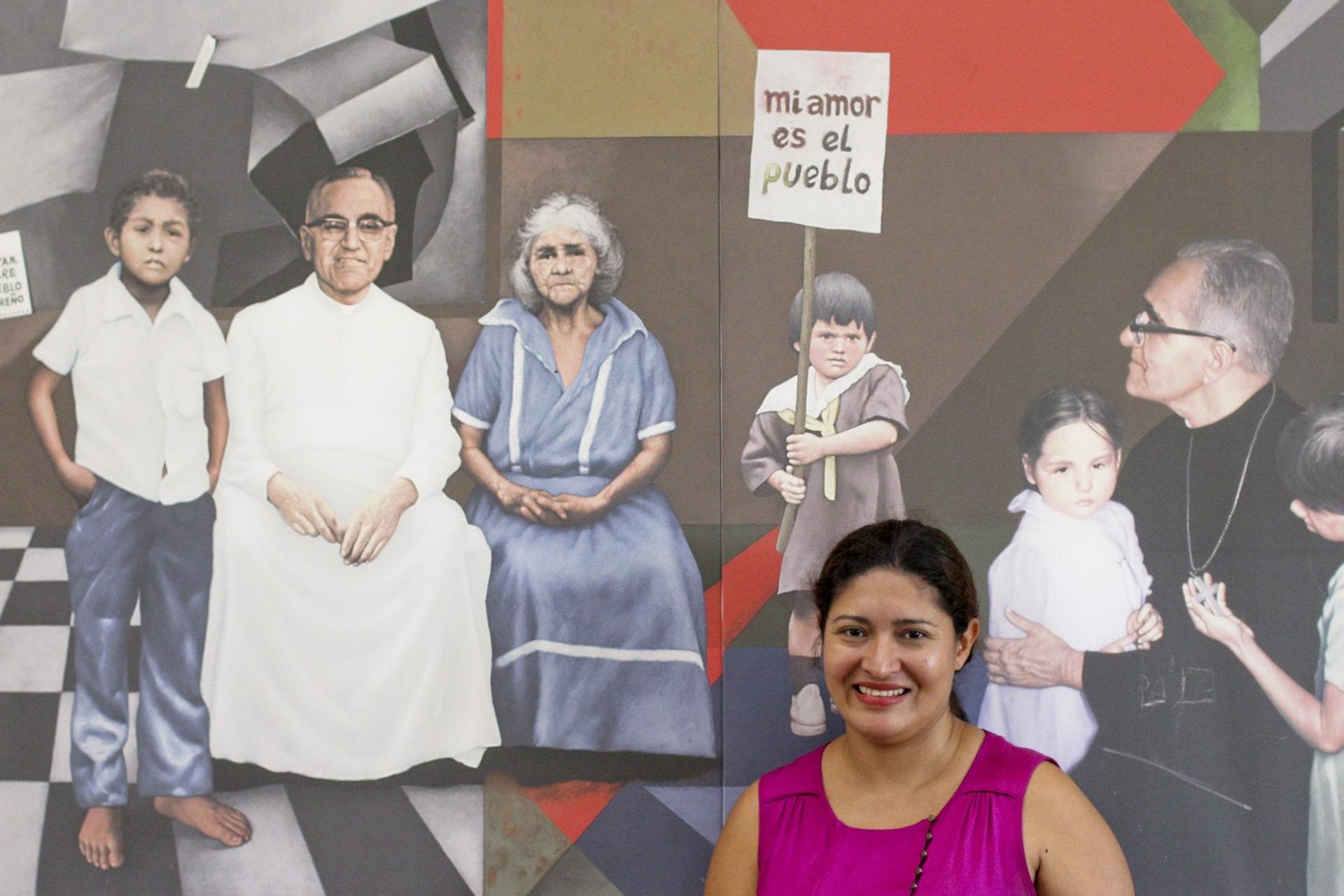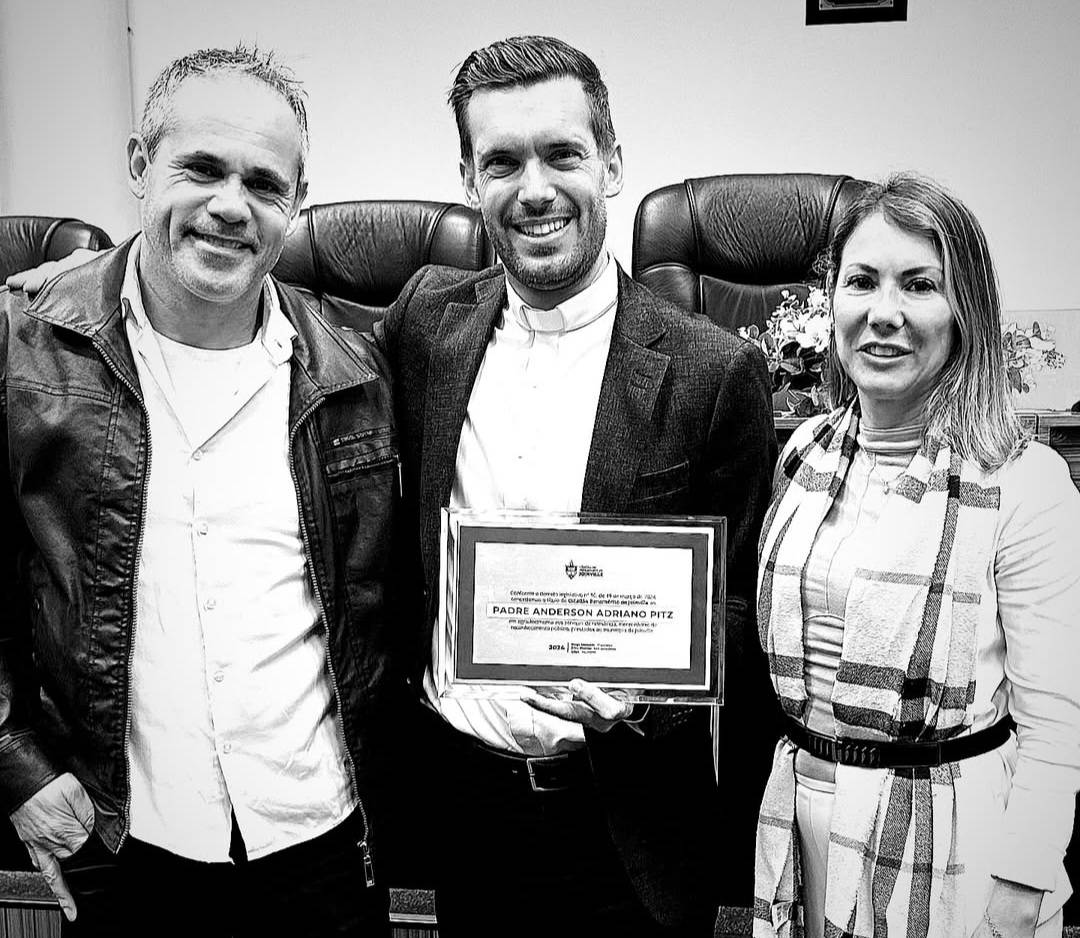ROME— “I believe in the communion of saints, the forgiveness of sins, the resurrection of the body, life everlasting … and I believe Saint Oscar Romero saved my wife’s life.”
The words belong to Alejandro Rivas, the husband of Cecilia Flores, 36, who, for all intents and purposes should have died three years ago after she gave birth to their third child, Luis, with a C-section. The couple has two other children, Rebeca, who’s 5 and Emiliano who’s 13.
Flores’s cure, which doctors could not explain, allowed Pope Francis on Sunday to declare Archbishop Oscar Romero, murdered in El Salvador in 1980 with a bullet through his heart as he was saying Mass, a saint.
Speaking with Crux on Tuesday, two days after the canonization ceremony in St. Peter’s Square, Rivas said the couple has seven children but “we lost four of them, always at the same time: the eighth week of pregnancy.”
RELATED: Pope hails Romero, Paul VI as icons of ‘outward-looking’ Church
Every pregnancy the couple experienced was labeled high risk, and during the last two, Flores needed to receive daily injections to make sure her blood coagulated properly to prevent a clot in the umbilical cord that led to four miscarriages until a doctor was able to help prevent that outcome.
After the birth of Luis, Flores had preeclampsia, but she’d expected the malady after having it following the other two births. However, things went south soon after, with an abdominal pain doctors couldn’t explain. A few days later, she was so bloated that “her skin would shine,” as Rivas remembers it.
Throughout the almost one-hour long conversation with Crux, he would often take his glasses out and take a break, wipe down a tear, reliving those days in which he almost lost his wife.
Doctors did several tests that confirmed that her kidneys and liver were ceasing to work, and she was eventually diagnosed with hellp syndrome (Hemolysis, Elevated Enzyme and Lot Platelet count) which, among other things, causes kidney failure and the liver to hemorrhage.
All the while, Flores was in an induced coma.
She had to receive 44 blood transfusions, and at one point, her blood pressure was so high as to be essentially off the charts. When Rivas saw this, he asked the doctors, “What’s happening, why aren’t you keeping it under control?” The doctor simply said the medicines weren’t working.
“I know the question was a stubborn one, but I had to ask it to the doctor still: what was there left to do?” Rivas said, adding that the response was that if he believed in God or something, he should pray, because only a miracle would save his wife at that point.
Rivas went home that night with the news that his wife might not make it through to the next day weighing on his heart.
“I knew everyone in our community was praying, I knew the priest was praying, our family, our friends …” he said. “But I felt the need to pray myself. I believe in the communion of saints, the forgiveness of sins, the resurrection of the body, and the life everlasting … So I asked my grandmother how could it be that she, who was surely in heaven, wasn’t doing something to help.”
As he was having this thought, Rivas was walking through his house and found a Bible that used to belong to his grandmother, a big devotee of Romero, who was almost killed at his funeral – between 30 to 50 people were gunned down that day, and the exact number remains unknown.
When he opened the Bible, he found a found a holy card of Romero with a prayer for his intercession in the back.
“So I prayed: for your love for El Salvador, for your love for the family, for your love for pregnant women and for your love for life, to the point that you gave yours, intercede so that God in his infinite mercy saves my wife,” Rivas remembers praying, acknowledging that up until that point, he didn’t have a particular devotion to Romero.
“I grew up with Romero this, Romero that … I got tired,” he said during the interview, almost embarrassed.
Without knowing it, and virtually at the same time, Melvin Rubio, a close friend of the family who belongs to the same parish community, was praying for Flores in the crypt of the cathedral of San Salvador where Romero is buried.
It was 2:00 a.m.
When he went back to the hospital the following day, he was expecting the worst. Yet upon seeing the two medical bags hanging by his wife’s bed, he saw that despite the major organ failure, her kidneys and liver were working again.
“Without me asking her for any details, the nurse told me that my wife’s organs had begun working between 2 and 2:15 a.m. My blood went cold. We had our miracle,” he said.
Luis was born on August 28, 2015. On Sept. 4 Flores was virtually given up for dead. Not long after, she woke up from the coma, and by Sept. 19, she was going to Mass to give thanks.
The family has a long history of ties with Romero: Flores’s uncle, her father’s brother, used to drive him around from time to time, and there are family pictures showing Romero spending hours in their home when he needed to rest.
After her inexplicable cure, neither she nor her husband wanted to go to the local archbishop to tell the story, saying, “We thought it was just one miracle among many.” At the insistence of Rubio, who said he was going to do so himself, the couple reluctantly came forward, and a panel including doctors, scientists and theologians concluded that her recovery was a miracle granted through the intercession of Romero.
The Rivas family had first-row seats at Sunday’s canonization ceremony thanks to the help of the Archbishop of El Salvador, who paid for the plane tickets, and a family from the Neocatechumenal Way that hosted them during the week they spent in Rome.
Flores considers herself to be blessed and encourages the world to get to know Romero better, reading his homilies and diary.
“He opens your ears and eyes, and you realize that he was truly a holy man, a brave man, who lived his life rooted in the Gospel, who wanted for people to live like brothers, in communion, so we can reach God’s glory,” she said.
















